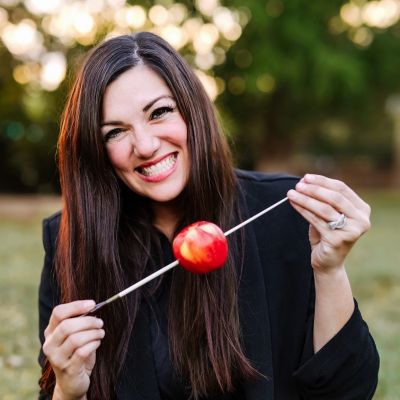
Dr. Angela Ammerman
George Mason University
Fairfax, Virginia
Dr. Angela Ammerman believes that teaching music is a calling. “Not only have I had the honor to be called to teach, but I have been called to teach teachers,” she says.
As an Adjunct Professor of Music Education, Ammerman primarily teaches music education majors at George Mason University, and plays a major role in teacher development. “I get to see students go from pre-service teachers to confident, extremely capable and beautifully passionate music educators,” she says.
During her early teaching experience, she created the Future Music Education Camp (FMEC), which helped high schoolers learn about lesson planning, engagement, classroom management, conducting and confidence-building. Students spent one week peer teaching and one week teaching real children. Seeing students get “that spark, that little nudge, to join the ranks of changemakers and bringers of joy” is so special to Ammerman. She is working on bringing the camp to Virginia and has offered virtual training to educators interested in starting their own camps.
In an effort to share her knowledge, Ammerman is writing a series of Music Teacher’s Guide books. The first book in the series focuses on engaging English Language Learners (ELLs) and is geared to not only improve teaching practices, but as a form of encouragement to teachers and advocacy for ELLs. “Music is one of the only subjects in which a student need not speak in order to contribute significantly,” she says. “It is in our music programs that even our newcomer students build social identity, express themselves and participate fully without speaking a word. It is in music where our students find their home away from home.”
The second book in the series looks at recruitment and retention. Two more volumes – on classroom management and general music – are scheduled to be published in 2024.
Ammerman’s influence is far-reaching. In 2018, she started a strings program at Hope House, a children’s home, in Chiang-Mai, Thailand. She secured instruments from her music teacher network as well as through donations (many from Amro Music) and received additional funding to buy more violins from a Chiang-Mai luthier. “I learned that great teaching often means great listening, that the most magical lessons are filled to the brim with the very things our students have taught us, and that we can find joy and love in even the darkest of times,” she says.








